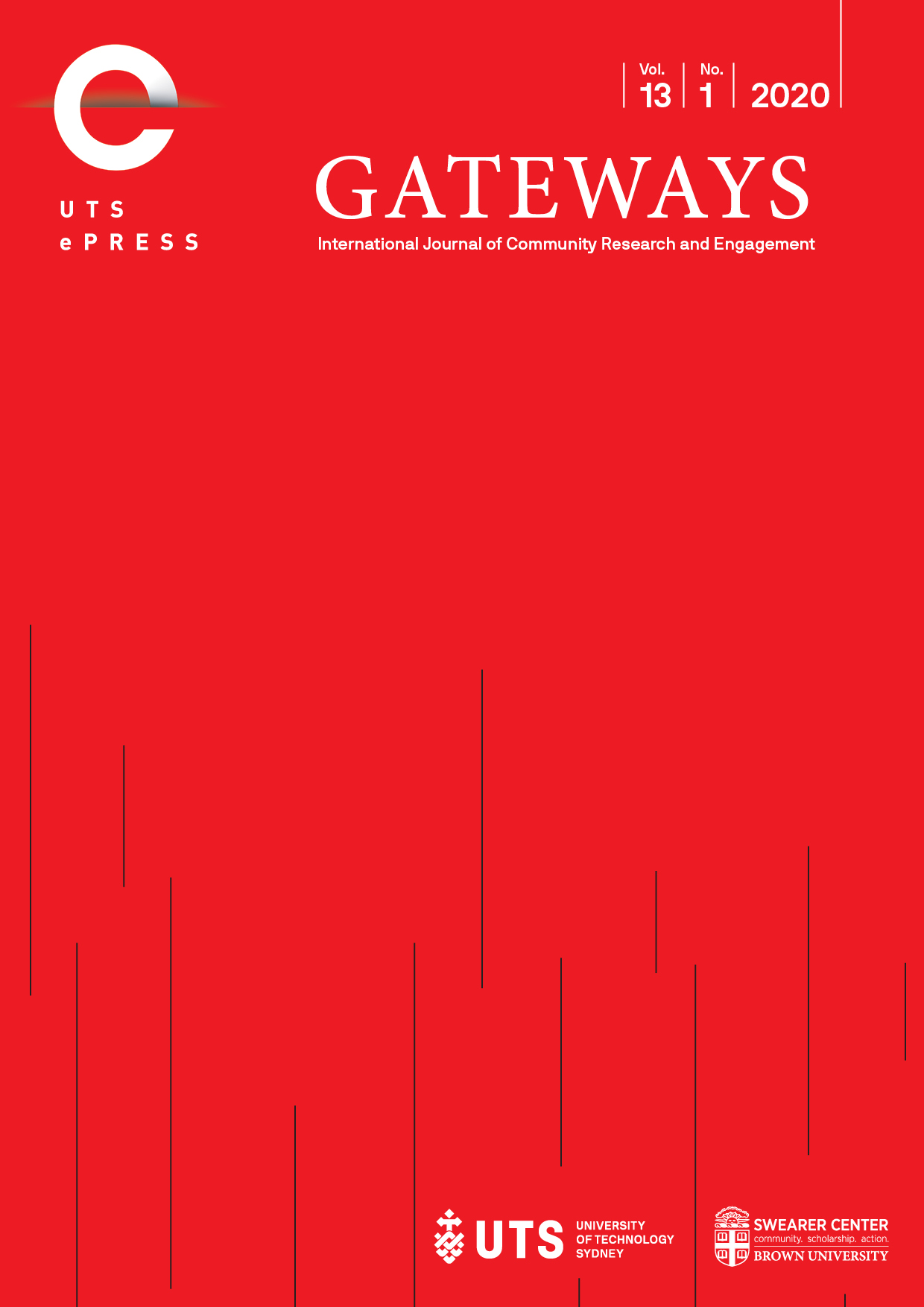Injustices épistémiques et recherche participative: un agenda de recherche à la croisée de l’université et des communautés
Main Article Content
Abstract
Cet article présente un cadre d’analyse innovant ancré dans le concept d’injustices épistémiques pour évaluer les recherches participatives. Composé d’une méthodologie de travail et d’un outil d’autoévaluation, ce cadre d’analyse a été développé au fil d’un processus participatif de production et de mobilisation des savoirs qui a pris place au cours des deux dernières années. L’équipe multidisciplinaire ayant entrepris ce processus est composée des chercheur-es et des représentant-es du Groupe de recherche et de formation sur la pauvreté au Québec travaillant à l’élaboration d’un programme scientifique de recherche sur les injustices épistémiques et les recherches participatives.
Nous défendons que les recherches participatives peuvent contribuer à apporter des réponses coconstruites entre les milieux universitaires et communautaires à certaines injustices sociales – dans le cas présent, les injustices épistémiques – qui sont enchâssées dans les processus de production des connaissances. De notre point de vue, les recherches participatives constituent des laboratoires permettant d’observer et de comprendre la production des injustices épistémiques et, le cas échéant, d’offrir des leviers pour les réduire grâce à la construction de ponts entre les différentes personnes et les savoirs qu’elles détiennent.
L’article est centré sur la présentation de deux dimensions de notre travail: (1) La méthodologie que nous avons mise sur pied pour bâtir des espaces de coapprentissage à la croisée de l’université et des organismes communautaires et (2) Un guide d’autoévaluation disponible en accès libre que nous avons bâti durant notre démarche afin d’aider les universitaires et leurs partenaires à s’engager dans une évaluation réflexive des processus participatifs de recherche du point de vue des injustices épistémiques. L’article met également de l’avant des défis inhérents à l’élaboration de ce programme de recherche ainsi que des réponses que nous avons pu leur apporter, et se termine par des réflexions sur les enjeux clés ayant émergé en cours de route.
Article Details
Issue
Section
Authors who submit articles to this journal from 31st March 2014 for publication, agree to the following terms:
a) Authors retain copyright and grant the journal right of first publication with the work simultaneously licensed under a Creative Commons Attribution License that allows others to share and adapt the work with an acknowledgement of the work's authorship and initial publication in this journal.
b) Authors are able to enter into separate, additional contractual arrangements for the non-exclusive distribution of the journal's published version of the work (e.g., post it to an institutional repository or publish it in a book), with an acknowledgement of its initial publication in this journal.
c) Authors are permitted and encouraged to post their work online (e.g., in institutional repositories or on their website) prior to and during the submission process, as it can lead to productive exchanges, as well as earlier and greater citation of published work (See The Open Access Citation Advantage Service). Where authors include such a work in an institutional repository or on their website (ie. a copy of a work which has been published in a UTS ePRESS journal, or a pre-print or post-print version of that work), we request that they include a statement that acknowledges the UTS ePRESS publication including the name of the journal, the volume number and a web-link to the journal item.
d) Authors should be aware that the Creative Commons Attribution (CC-BY) License permits readers to share (copy and redistribute the work in any medium or format) and adapt (remix, transform, and build upon the work) for any purpose, even commercially, provided they also give appropriate credit to the work, provide a link to the license, and indicate if changes were made. They may do these things in any reasonable manner, but not in any way that suggests you or your publisher endorses their use.
For Volume 6 (2013) and before, the following copyright applied:
Articles published by UTSePress are protected by copyright which is retained by the authors who assert their moral rights. Authors control translation and reproduction rights to their works published by UTSePress. UTSePress publications are copyright and all rights are reserved worldwide. Downloads of specific portions of them are permitted for personal use only, not for commercial use or resale. Permissions to reprint or use any materials should be directed to UTSePress.
